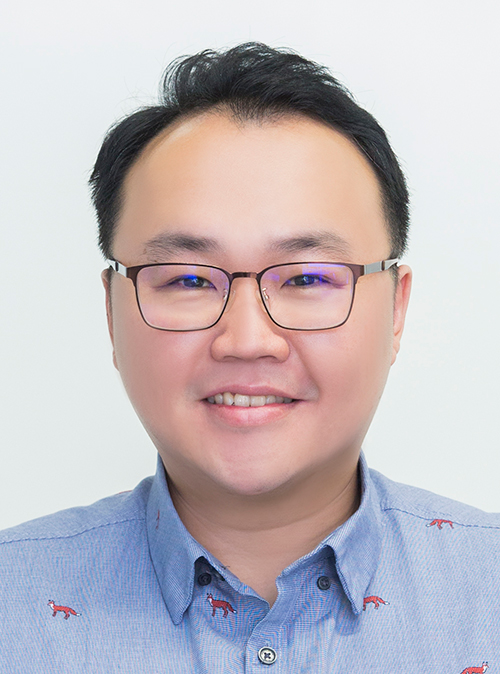Teaching Statement
Be curious, achieve small wins, and learn together. This is the core of my philosophy of teaching and learning. I aim to stoke curiosity by making learning authentic — challenging students to solve real-world problems relevant to their own experiences, beyond conventional means. Students need to persevere in order for deeper learning, where the rewards are greater but may often not be immediately tangible. I intend to use the principle of achieving small wins in my teaching — where with each small success, learners are encouraged, consequently and progressively work towards bigger goals. With group learning, learners may learn from each other, and foster interpersonal communication skills. My philosophy is in itself, a lesson for my learners on life skills, and something that I wish to impart to them to attain success in all that they do — beyond courses, grades, and school.
My teaching experiences stems mainly from my time in the PhD programme here in SMU, but also from my time mentoring junior staff and students while I was working in DSO. I have since the beginning of the programme been active in taking up more than the requirement for teaching assistantship, and this is reflected in taking up 3 terms as a teaching assistant and 1 term as a graduate instructor. Under Prof. Richard Davis, Benjamin Gan, and Paul Griffin in IS306 Interaction Design and Prototyping, I drew on my comprehensive experiences working in HCI design and methods to guide and mentor project groups throughout the term both in and out of class. Under Prof. Rajesh Balan in IS416 Mobile and Pervasive Technology and Applications, I was given the opportunity for greater involvement, and under his mentoring, guided and graded student assignments and projects. Under LiveLabs, I mentored three undergraduate interns (Insaf Ismath, Shiven Mian, and Dumindu Tissera) with minimal supervision from my advisors. I guided them on our research projects, taking them through topics of machine learning, computer vision, audio processing, and research methods in HCI. Dumindu who worked with me on using computer vision to understand parent child interaction, is now pursuing a PhD on computer vision for aerial and ground navigation at the University of Moratuwa. Throughout my career in DSO, I mentored pre-university students as part of our science and technology outreach programmes. I had the fortune and take pride in advising two talented scholarship applicants in psychology to include a computational background in their studies, and mentored them when they interned with us. For one applicant whom I was directly supervising, Maple Li, I taught her (and myself at the same time) to develop a web scenario-based learning experimentation tool on a software stack of HTML, CSS, PHP and SQL.
My work experiences and education enable me to contribute teaching in three main areas: interaction design and prototyping, mobile and web programming, and ubiquitous computing. I will be able to teach many of the computer science courses that are offered. I describe the techniques I intend to employ with reference to these areas. My experience doing research on learning and training using serious games for the military, has given me a thorough background in learning and instructional strategies. While the heart of my teaching philosophy is constructivist, memorization as a behaviourist approach has its place in learning (as other approaches). I intend to adopt a mix of approaches in designing curricula, focusing in-class sessions towards higher level learning, and more formative assessments. For instance, where content is of the form such as facts (e.g., reserved keywords in programming languages), a comprehensive databank of ungraded web-based quizzes with scores (for bragging rights) and unlimited tries may be adopted. This has the additional benefit of allowing slower learners to catch up with the course materials and challenging stronger learners to maintain their high scores. While less motivated students may initially not adopt such quizzes, the prospect of a summative assessment will likely prompt learners to use it as a method of revision.
Fundamental programming courses tend to focus on understanding the syntax of the language, and basic paradigms in languages (data, conditional, and looping structures, objects). However, newer methods of programming education (e.g., Scratch from MIT, Alice from CMU) have been adopted that are already well-received by students from elementary school and above. While these typically serve as a precursor to a full-fledged programming language, some of the pedagogical concepts (sharing and co-learning, tangible feedback from interaction with graphical objects) may be adopted for the undergraduate level in full-fledged programming languages such as Python or Java. For instance, the course may be centred around the creation of a simple Python-based 2D game like Space Invaders. The creation of Space Invaders would require the same basic paradigms of data structures, conditions, looping and objects, and provide a fun tangible objective for students. While students will initially aim for a basic version of Space Invaders, they will be encouraged to be creative and develop interesting versions for their classmates to play.
I see my role as an educator as more of a facilitator, than one who transfers knowledge. I resonate strongly with master educator Ben Johnson’s words, “Great teachers engineer learning experiences that put students in the driver’s seat, and then get out of the way.” I know I would have succeeded as an educator when my students passionately pursue knowledge and apply themselves to help others learn too.
